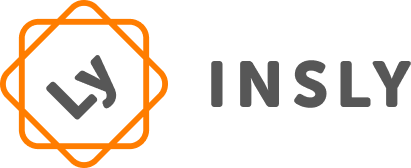[vc_row css=”.vc_custom_1620126523430{margin-right: 10% !important;margin-left: 10% !important;}”][vc_column][vc_column_text]
We continue with our series on interviewing insurtech influencers to find out their views on market trends, future success stories, focus of investments, and much more.
This time, we have the amazing Paolo Cuomo answering our burning questions. As an impactful insurtech influencer, Paolo’s been sweating away to bring digital transformation, insurtech, and bionic underwriting to the London insurance market since before any of those buzzwords existed. He has founded and is involved in many world-changing insurtech initiatives. Less conversation, more actions – let’s get to the point!
Please name three of the most promising insurtech start-ups in 2021. Why exactly these?
With things moving so fast in the insurtech space at the moment, it is easier to touch on key themes than individual companies.
1) Throughout 2021, I believe we will see a lot more talk about the next stage of parametric insurance, moving beyond simple trigger points to a combination of parametrically triggered events and proof of loss.
2) The evolution of improved data standards will be an opportunity for both data providers and carriers who want to use more data to increase efficiency.
3) I believe this year we will see various machine learning/AI technologies really starting to have a mainstream impact – from auto-triaging customer e-mails and converting unstructured data to allowing image analysis of claims (whether photos taken by a home or car owner, or satellite images of flood or wind damage). None of these is new, but in 2021, they will significantly mature.
If I could add a fourth, we shouldn’t forget that 2021 will be a huge year for climate discussion and the topic of sustainability. Insurers will be looking to do their part – some because they genuinely care, some because they simply feel pressured to. Either way, those start-ups who can jump on this trend, will find it easier to get through the doors of potential clients. The fact there are three ‘climate-related’ start-ups in the latest cohort of the Lloyd’s Lab excitingly emphasises this point.
What is the biggest obstacle for insurance start-ups, that holds back market disruption and meaningful change?
There remains a challenge around efficiency engagement between the carrier (and broker) and start-ups. This pain is most directly felt by start-ups where the uncertainty and lack of cash flow can be a real problem. I’m delighted that during UK FinTech week, Brit announced that we signed up to the FinTech Pledge that aims to give some certainty (and speed) to insurtechs around the process of engaging with us.
If you were to establish your own insurance start-up, which problem would you solve and why?
This is a great question and one I reflect on, constantly. If I could have two answers, they would both be data-related. The first is to find a better way of mapping data sets to each other – much as Doorda has done with UK data. As an example, today it is possible to get relatively high-quality sustainability-related data link to the ISIN codes used for companies. However, most insurers are using D&B coding for their companies as that is highly efficient for sanctions checking. No one appears to have made a mapping table between these two. I’m sure it’s not easy, but then again, insurtech start-ups have never picked the easy projects.
A long-term bet would be to realise how we could get feeds directly from company systems to help understand their assets, so we wouldn’t spend time on rekeying data! Layr has done this in the SME space, but imagine the value in moving into the large corporate space – far more efficient for them as buyers, and far easier for the insurers to ensure the right ongoing coverage.
Which insurtech field will be the most impactful and attract funding in 2021?
Back in 2015-2016, the funding often followed the hype, noise, and excitement. Right now, investors appear more thoughtful and savvier, which is great, as it lets people focus on developing good ideas, rather than shouting lots about mediocre ones. I believe this year the driver of funding to be less the field and more the revenue model. Investors have sensed how the industry is shaping up with regards to how it will precure insurtech services. The most interesting are those start-ups and scale-ups whose models are around subscription revenue streams that can grow into more classes or activities. Anyone with a super niche idea will struggle for backing, however, it might be cool.
The future of insurance: what makes you hopeful, what worries you?
As an industry, we should be excited and proud that much of our innovation is beyond simply convenience and making a meaningful difference to people. The ability to offer previously uninsurable building flood cover through parametric flood products (FloodFlash), ensuring that commercial drone pilots can now buy liability cover (Flock), or that people can drive a drunk friend home in their own car via by-the-hour motor cover (Cuvva) is a genuine social good. “Insurtech for good” is a key theme we discuss on the InsurTech Board. While there is an awfully long way to go to really close the protection gap, this is a promising start!
The worry for me is that we don’t make the most of the enforced changes of last year when we head back to the office and to a multi-modal way of working. There’s a real risk of losing both the steps taken on data and digital, and returning to a focus of who works within a mile of use, rather than treating the entire insurance and start-up community as a single incredible smart and powerful ecosystem.
[/vc_column_text][vc_column_text css=”.vc_custom_1620127959572{margin-top: 20px !important;margin-bottom: 20px !important;padding-top: 15px !important;padding-right: 5% !important;padding-bottom: 15px !important;padding-left: 5% !important;background-color: #ebebeb !important;border-radius: 35px !important;}”]
About
Paolo’s been sweating away to bring digital transformation, insurtech, and bionic underwriting to the London insurance market since before any of those buzzwords existed. The constant frustration and despair have been punctuated but a few successes including the co-founding of InsTech London, his involvement in Brit’s algorithmically-driven Ki Syndicate, and first plagiarising and then popularising the term bionic underwriter. When it all gets too much for him, Paolo escapes by reflecting on the business impact of quantum computing. PS! Search for “Quantum London” or visit their LinkedIn page to find out more.
Follow Paolo on: LinkedIn and Twitter [/vc_column_text][vc_column_text]Also, don’t forget to check out our interview with Robin Kiera! [/vc_column_text][/vc_column][/vc_row]



